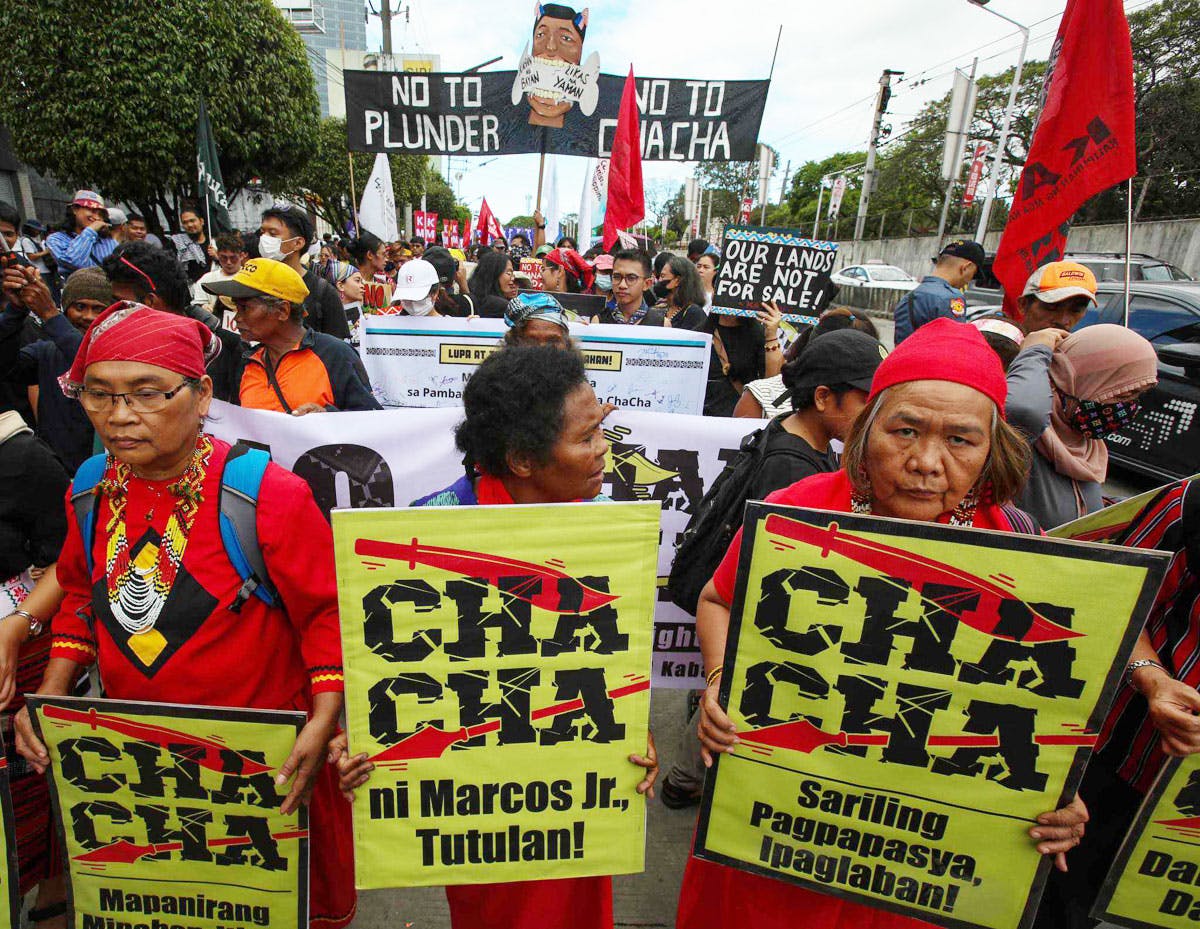The committee will be convened to expedite discussions on the Resolution of Both Houses 7 or the House version of economic Cha-cha or Charter change, according to Senior Deputy Speaker Aurelio Gonzales Jr

The House of Representatives will convene today, Feb. 26, the committee of the whole to deliberate on the proposed economic Charter change.
The committee will be convened to expedite discussions on the Resolution of Both Houses 7 or the House version of economic Cha-cha, according to Senior Deputy Speaker Aurelio Gonzales Jr.
“The conversion of the House into a committee of the whole, which is like a plenary session, aims to involve every one of our colleagues in discussions with our resource persons. This will facilitate proceedings leading to an eventual approval or rejection of the proposed amendments,” he explained.
This means the House leadership will be doing away with the usual legislative mill, where measures are deliberated at the committee level before lawmakers vote and elevate such to the plenary for all House members to debate and cast their votes.
Several resource persons, including economists, have been invited to the initial debates at 1 p.m. There will be three hearings weekly. Proposals will be voted on before Congress’ Holy Week break starting March 22, Gonzales said.
Gonzales’ RBH7 co-authors are Deputy Speakers David Suarez, Kristine Singson-Meehan and Antonio Albano; Majority Leader Manuel Jose Dalipe; Senior Majority Leader Ferdinand Alexander Marcos and Reps. Yedda Marie Romualdez, Jude Acidre, Elizaldy Co and Luis Raymund Villafuerte, among others.
Senate President Juan Miguel Zubiri had promised President Marcos that their bill on economic Cha-cha, Resolution of Both Houses 6, would be passed before Congress goes on a Lenten break next month.
RBH6 is co-authored by Senators Sonny Angara and Loren Legarda.
The Senate’s RBH6 and the House’s RBH7 are nearly identical save for the voting provision, in which senators added the phrase “each House voting separately.”
Gonzales said this was dropped in RBH7 “because those four words are not in the Constitution.”
“We in the House chose to be true to our Constitution by quoting exactly what it says, no more, no less. If they say joint voting is unconstitutional, separate voting is also against the Char-ter because it is not there. Let the experts interpret this provision,” he asserted.
Both chambers are seeking to amend certain economic provisions of the 1987 Charter, particularly Articles 12 Section 11 (60-40 ownership of franchise), 14 Section 4 (60-40 ownership of educational institutions) and 16 Section 11 (70-30 ownership in the advertising industry).
The suggested principal amendments are the insertion of the phrase “unless otherwise provided by law,” which would empower Congress to lift or relax present economic restrictions and the addition of the qualifier “basic” in Article 14.
Voting separately
RBH7 does not contain the phrase “voting separately,” which could further widen the gap between the two chambers, the Senate deputy majority leader noted.
“I hope they honor the agreement. The President himself said it and was a witness to that conversation,” Ejercito said in an interview over radio dzBB.
He was referring to the agreement that the Senate would take the lead in amending the Charter’s economic provisions and the House would adopt it.
“I think we have a deadlock again,” he said.
Senators could not just rush the debate and discussion on RBH6, which were initially set to finish by October, he noted.
“Why is RBH7 being rushed? As I said, it is difficult to make mistakes. This is our Constitution, the soul of the republic, we cannot make mistakes. That is the position of the Senate. We have to do it correctly, do it right. The President did not specifically mention a deadline,” he maintained.
The deadlock between the 24-member Senate and the 311-strong House could have been avoided if the lower chamber honored the agreement made in the presence of the President, Ejercito said.
Despite the agreement, the House continued the signature campaign for Cha-cha through a people’s initiative, which pushes Congress to vote as one with the House outnumbering the Senate, he lamented.
The signature drive has strings attached as signatories received money without knowing the purpose of what they signed, he noted.
Congress does not need to rush Cha-cha as sufficient measures to attract foreign direct investments are already in place, such as the Public Services Act and public-private partnerships, Ejercito said.
“There are so many problems in the country today: the rising prices, inflation, energy, infrastructure. I think this is what we should focus on. This Charter change is a very divisive activity that should be timed properly,” he added.
The impasse between both chambers has already affected some proposed measures including the anti-agricultural smuggling and profiteering bill currently pending, he said.
The bill has been debated and passed by the Senate, he added.
Ejercito mentioned that the Commission on Appointments has yet to meet since regular session resumed last Jan. 22.
He hopes the impasse will be resolved when senators and congressmen meet today at Malacañang to witness the President’s signing of the magna carta for seafarers. – With Cecille Suerte Felipe
